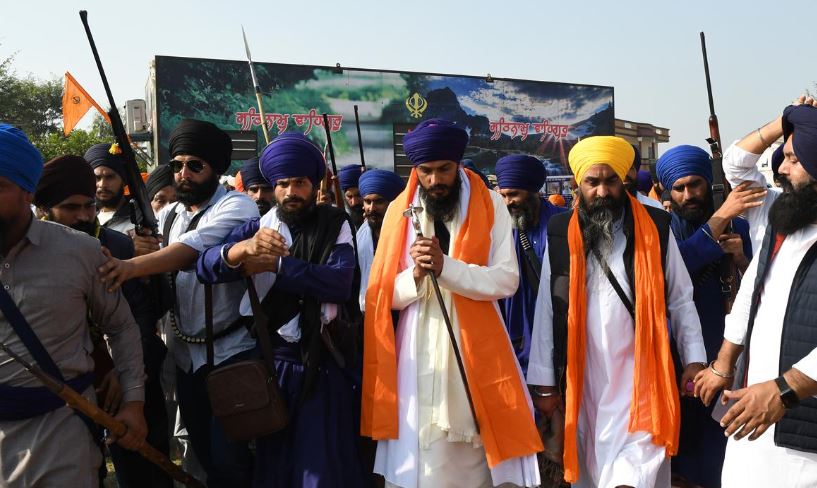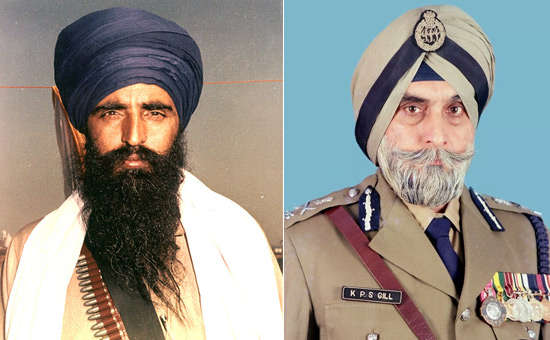It is possible that the Khalistan issue could be asked in an SSB interview, particularly if you are being interviewed for a position related to national security or defense. The Khalistan movement is a sensitive topic in India and has the potential to impact national security, so it is not uncommon for it to be discussed in such interviews.
If you are asked about the Khalistan issue, it is important to answer the question honestly and respectfully. Avoid taking a one-sided or extreme position on the issue, and instead, focus on providing a balanced and nuanced response. Remember that the SSB interview is designed to assess your ability to handle complex and sensitive situations, so it is essential to demonstrate maturity and good judgment in your responses.
What is the Khalistan Issue UPSC | SSB Interview Topic
Khalistan is a proposed independent Sikh state that would be created from the current Indian states of Punjab, Haryana, Himachal Pradesh, and parts of Rajasthan and Jammu and Kashmir. The movement for Khalistan began in the 1970s and gained momentum in the 1980s, with violent clashes between Sikh militants and the Indian government. While the movement has largely subsided in recent years, it remains a contentious issue in Indian politics.
Origins of the Khalistan Movement
The roots of the Khalistan movement can be traced back to the early 20th century, when Sikh leaders began advocating for an autonomous Sikh state within India. However, the movement gained momentum in the 1970s and 1980s due to a combination of political, social, and economic factors.
One of the main drivers of the Khalistan movement was the perception among Sikhs that the Indian government was neglecting the Punjab region, which has a majority Sikh population. Sikhs felt that they were not receiving adequate representation in the Indian government and that their economic needs were being ignored.
Another factor was the rise of religious extremism among some Sikhs. The Sikh religion has a long tradition of martyrdom and resistance to oppression, and some Sikh militants began to see violence as a legitimate means of achieving their goals. The most prominent of these militant groups was the Khalistan Liberation Force (KLF), which was responsible for a number of high-profile attacks in the 1980s and 1990s.
Violence and Suppression
The Khalistan movement reached its peak in the 1980s, with violent clashes between Sikh militants and the Indian government. In 1984, Indian Prime Minister Indira Gandhi ordered an attack on the Golden Temple in Amritsar, the holiest Sikh shrine, in an attempt to flush out Sikh militants who had taken refuge there. The attack, which resulted in the deaths of hundreds of people, including innocent civilians, sparked outrage among Sikhs and led to a wave of violence and unrest in the Punjab region.
In the years that followed, both the Indian government and Sikh militants engaged in a brutal campaign of violence and repression. The government launched a crackdown on the Khalistan movement, arresting and detaining thousands of Sikhs without trial. Meanwhile, Sikh militants carried out a series of bombings and assassinations, targeting Indian politicians and officials.
By the early 1990s, the Khalistan movement had largely been suppressed, with many of its leaders either killed or imprisoned. However, the legacy of the movement continues to be felt in Indian politics, particularly in the Punjab region.
Current Status of the Khalistan Movement
While the Khalistan movement has largely subsided in recent years, it remains a contentious issue in Indian politics. Some Sikhs continue to advocate for an independent Khalistan, while others have shifted their focus to demands for greater autonomy within India.
One of the main challenges facing the Khalistan movement today is the lack of consensus among Sikhs about the best way to achieve their goals. While some Sikhs advocate for peaceful protests and dialogue with the Indian government, others believe that violence is the only way to achieve their objectives.
The Indian government, for its part, remains opposed to the idea of an independent Khalistan. Indian officials argue that the country is a secular democracy and that the creation of a separate Sikh state would be a violation of India’s territorial integrity and sovereignty.
Conclusion
The Khalistan movement is a complex issue with deep historical roots and a legacy of violence and repression. While the movement has largely subsided in recent years, it remains a contentious issue in Indian politics, particularly in the Punjab region. Ultimately, the fate of the Khalistan movement will depend on the willingness of both Sikhs and the Indian government to engage in meaningful dialogue and compromise.
Additional Information on Kanwar Pal Singh Gill
KPS Gill, also known as Kanwar Pal Singh Gill, was an Indian Police Service (IPS) officer who served as the Director General of Police (DGP) of Punjab, India, from 1988 to 1995. He is known for his efforts in combating terrorism and insurgency in Punjab during the 1980s and 1990s.
Gill was born on December 9, 1934, in Ludhiana, Punjab. He joined the IPS in 1958 and served in various capacities in different states of India. However, it was during his tenure as DGP of Punjab that he gained national and international recognition for his work in suppressing terrorism in the state. He is credited with initiating a new strategy, known as the “Punjab model,” which involved a combination of tough law enforcement measures and political negotiations.
Despite facing criticism for some of his methods, including the use of extra-judicial killings, Gill’s efforts are widely acknowledged to have played a crucial role in ending the violent insurgency in Punjab. After retiring from the police force, Gill served as a security advisor and consultant, and was involved in various initiatives related to national security.
Gill passed away on May 26, 2017, at the age of 82.








